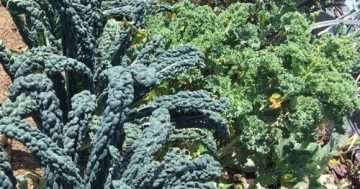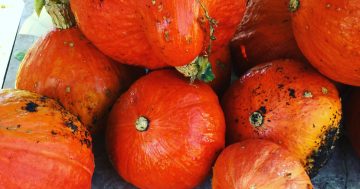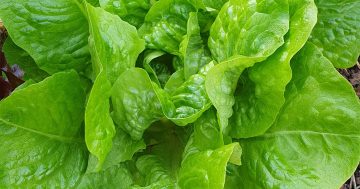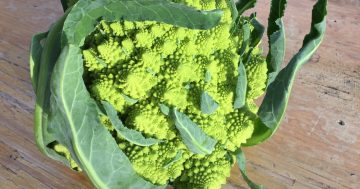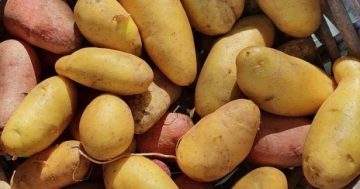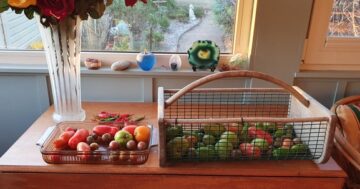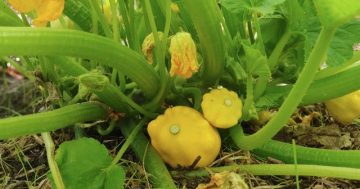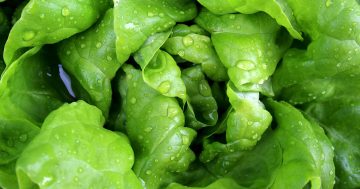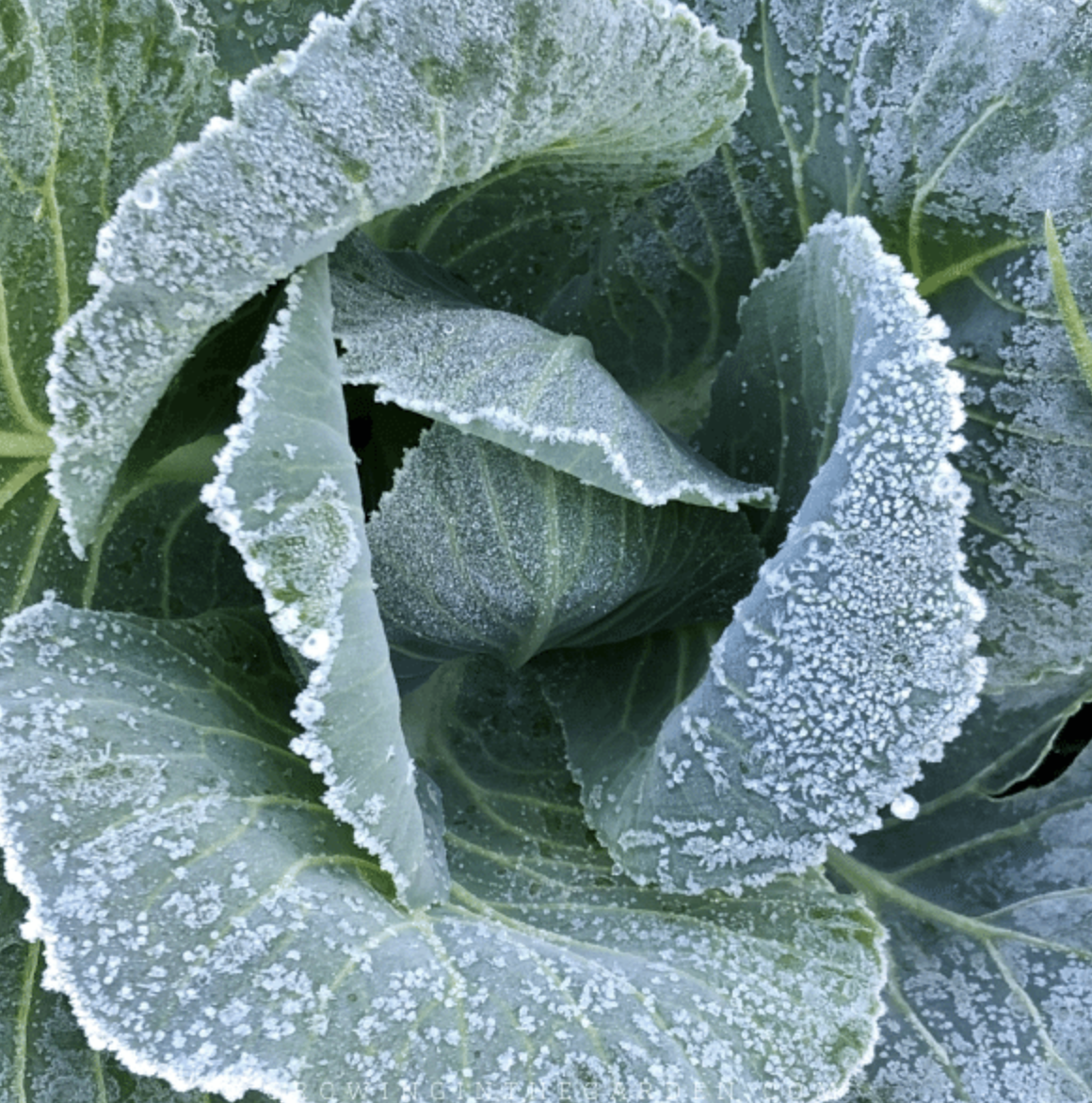
Good planning in the vegetable garden is rewarded in a cold winter. Photo: Supplied.
We have passed the shortest day, always a good winter marker and cause for celebration, even though we still have plenty of cold weather and winter conditions ahead.
Traditionally mid-winter is a great time to work through the garden chores, pruning and general tidying up. So take advantage when the sun comes out. A lovely sunny day in a winter garden can be exhilarating and rewarding.
My favourite winter gardening project is to start planning the wonderful food possibilities that the new spring growing season can bring. This is best done sitting in the cosy warmth of the house of course. Loungeroom gardening is a wonderful winter activity.
While it is a bit too early to propagate summer crops such as tomatoes, chilli, eggplant, pumpkin or corn, you can certainly start buying those seeds now.
Stocks of popular summer vegetable seeds do get bought out early and can be in short supply by spring, so choosing your seeds now will avoid later disappointment.
When perusing seed packets and seed catalogues, it is possible to gather a great deal of growing information. While the amount of information provided does vary with different seed companies, a good strategy is to view information from a range of suppliers.
This growing information can help you determine when to plant, how to plant, when to harvest – and so on. There are a number of good small-to-medium Australian companies out there supplying great seeds. Explore.
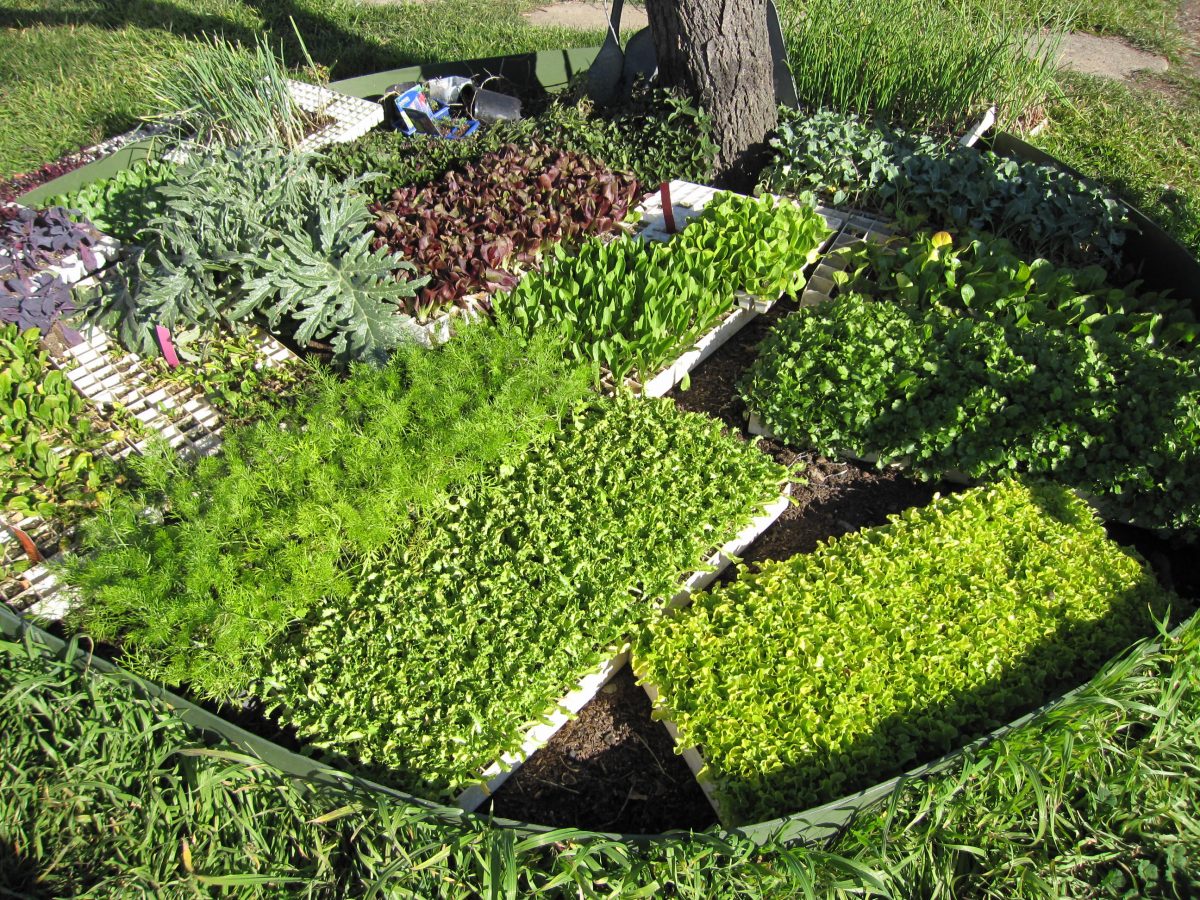
Start planning seed purchases now for a head start on spring. Photo: Supplied.
Another undertaking on your seed selection checklist is to check use-by dates on seed packets. Out of date seed will have unreliable and very poor germinating results. Parsnip seed, for example, needs to be pretty fresh to ensure good germination. Onion, spinach and parsley seeds need to be no older than 12 months.
Other vegetable seeds can cope with age. Lettuce is probably the most age tolerant, as is cucumber, endive, collards and radish. If your previously purchased seeds have been well stored (cool, dry, dark conditions) then you can still use them if the use by date allows. The use by date is still meaningful because some seed suppliers keep seed some time before selling.
Lastly, you can keep planting seedlings of Asian greens, rocket, cabbage, cauliflower and European lettuce. Most importantly, stay patient, it’s mid-winter and nothing is growing quickly.
Seeds purchased from online companies are more likely to be kept in appropriate storage environments whereas seeds purchased at nurseries, supermarkets, hardware and garden shops, etc, are kept in racks without many environmental controls. To maintain good seed quality, seeds need to be stored in cool, dry, stable conditions.
Those of you who have been consistent in your planting from late summer through autumn, will be harvesting the benefits.
There are some great recipes around for cabbage, potatoes, broccoli and kale and any meal you prepare will only taste better with a winter salad you have harvested from the garden.
If you still have carrots and potatoes in the ground that have survived the very wet soil conditions then be happy. Many parts of our cold climate region have been so wet that root crops are turning to sludge in the ground.
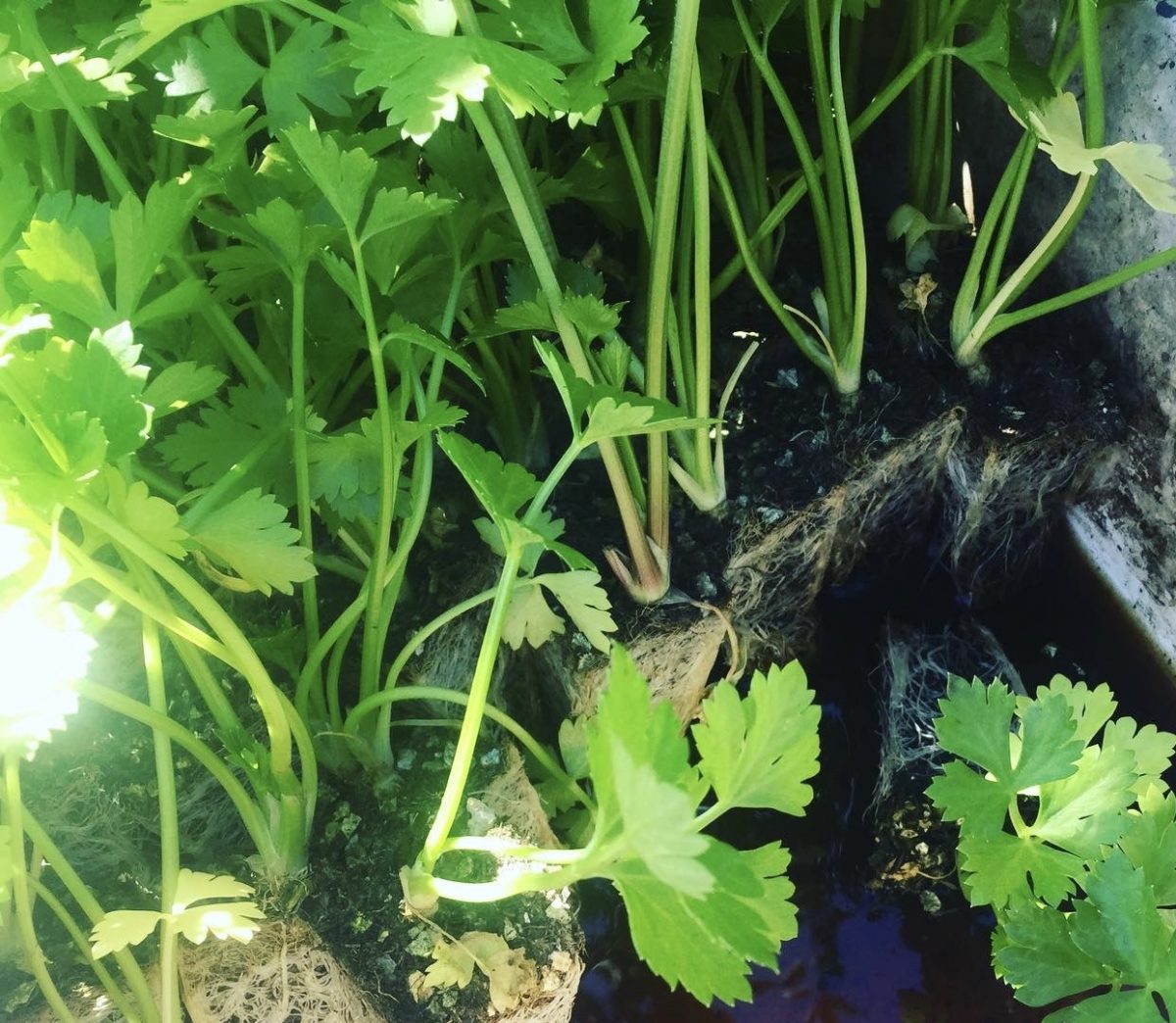
Some seedlings can be planted out with care. Photo: Supplied.
Soil temperatures at this time of year are generally below 10 degrees Celsius so not the best time to be planting seeds directly in the vegie patch. If propagating seeds is your passion, it is possible to continue this activity at this time of year, but you will need a warmer environment than the garden shed.
Propagating at this time of year needs to be undertaken in a hot house, hot box or warm spot in your house. Seeds such as brassicas, lettuces, onions or peas should germinate quite well in a moderated environment.
Even with soil temperatures still quite low you can continue to plant out seedlings into the vegie patch, including: Asian greens, rocket, cabbage, cauliflower, European lettuce, spinach, onions and leeks, but remember, stay patient. Seedlings planted in mid-winter will be harvestable from early spring through to early summer.
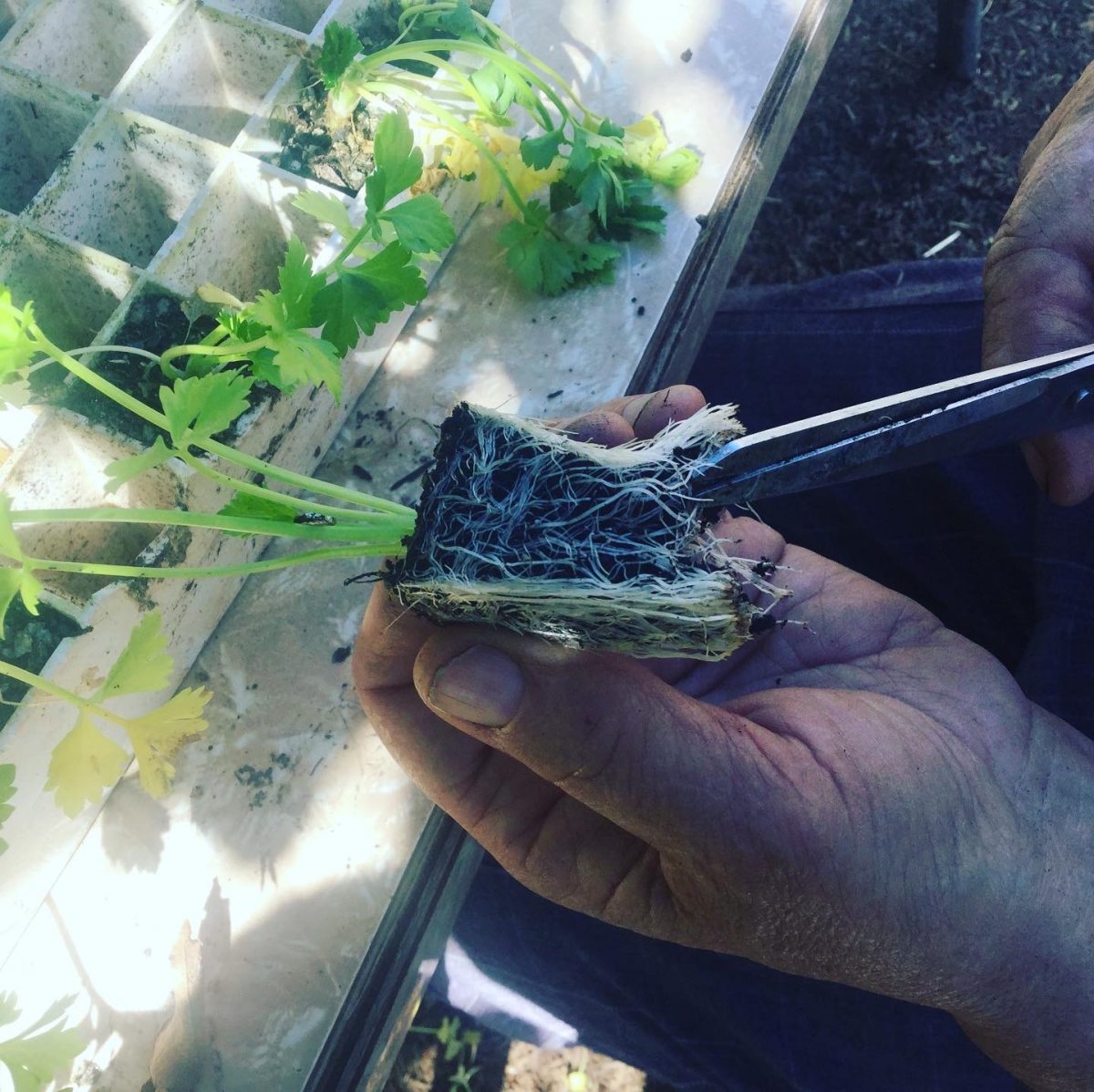
Take care with seedlings and don’t expect growth to be immediate. Photo: Supplied.
Lastly, compost is a very important garden resource and may need a bit of extra care over winter. If you are having excessive rain, it would be beneficial to cover an open compost pile, as just like soil, it can get saturated and this will have a negative impact on microbial activity. Compost is an essential ingredient for the spring growing season.
Bronwyn Richards and Helen Lynch run Wynlen House Artisan Village Farm and Learning Centre, a small village organic market garden in Braidwood, NSW. Since 2006 they have grown and sold fresh vegetables, eggs, preserves and garlic, and teach others to do the same.












